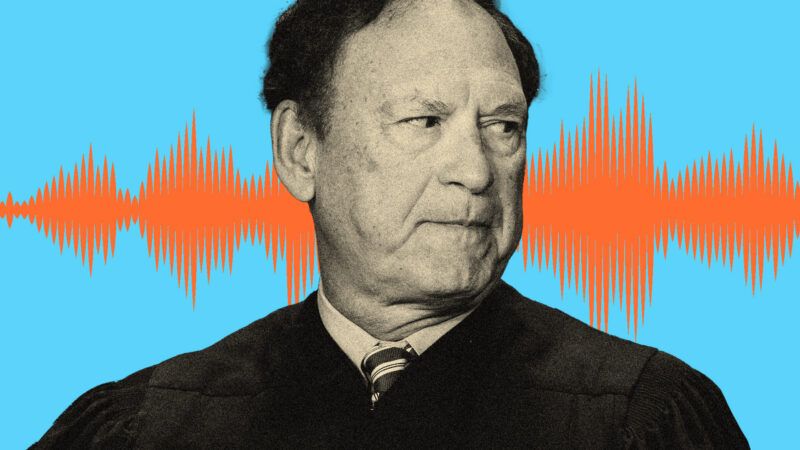The 'Bombshell' Secret Alito Recording Was Not a Bombshell
The justice's benign comments set off a lengthy news cycle and have been treated as a scandal by some in the media. Why?

There's a mythic air around federal judges. Though equipped with immense power to decide issues of paramount political importance, we are in some sense expected to believe they are robots when they assume their role on the bench, devoid of basic biases and beliefs that motivate pretty much any sentient being. Justice should be impartial.
That explains in part how you get news cycles like the one this week, pegged to comments made by Supreme Court Justice Samuel Alito that were secretly recorded by "gonzo" journalist Lauren Windsor in an exchange with him at the annual Supreme Court Historical Society dinner. The result was a "bombshell" report.
But was it?
Posing as a Catholic conservative, Windsor approached Alito at the closed-door event and asked him a series of questions, although she has not released the full unedited audio. The part she did release, which I will include mostly in full so as to provide the adequate context, is as follows:
Windsor: I know it's got to be terrible what your family, what you and your family are going through right now, so I'm just so sorry.
Alito: Thank you. Thank you very much. I appreciate you.
Windsor: But, and I'm sure you don't remember this at all, but what I'd asked you about was about the polarization in this country, about, like, how do we repair that rift. And considering everything that's been going on in the past year, you know, as a Catholic, and as someone who, like, really cherishes my faith, I just don't know that we can negotiate with the left in the way that needs to happen for the polarization to end. I think it's a matter of, like, winning.
Alito: I think you're probably right. On one side or the other, one side or the other is going to win. I don't know. I mean, there can be a way of working, a way of living together peacefully. But it's difficult, you know, because there are differences on fundamental things that really can't be compromised. They really can't be compromised. So it's not like you're going to split the difference.
Windsor: And that's what I'm saying. It's just, I think that the solution really is, like, winning the moral argument. Like, people in this country who believe in God have got to keep fighting for that, to return our country to a place of godliness.
Alito: I agree with you. I agree with you.
That, dear reader, was the bombshell.
Let's do an honest accounting of what we learned. We found out that Alito thinks one side in American politics will win—he doesn't say which one and doesn't appear to know—which does not strike me as a particularly contentious statement when considering our system is predicated on running in elections, with someone winning. But the arguably more controversial comment in terms of press coverage was Alito saying "I agree" in response to Windsor's remark about the importance of the country returning "to a place of godliness."
Many people disagree with that idea, as is obviously their right. But it is puzzling to present it as scandalous or even surprising when considering Alito's religiosity is not a secret. He has been open about his Catholic faith, has spoken at events sponsored by religious groups, and his social conservatism should not come as a shock to people who have read some of his decisions, including his 2022 majority opinion in Dobbs v. Jackson Women's Health Organization, which overturned Roe v. Wade and ruled the Constitution does not confer the right to have an abortion.
Windsor also secretly recorded Chief Justice John Roberts, who told her that the task of navigating the U.S. to a more "moral path" is for "the people we elect" and "not for lawyers." When she countered that America is "a Christian nation and that our Supreme Court should be guiding us in that path," he responded: "I don't know that we live in a Christian nation. I know a lot of Jewish and Muslim friends who would say maybe not, and it's not our job to do that." Even less of a "gotcha," which was a low bar to clear.


Show Comments (178)